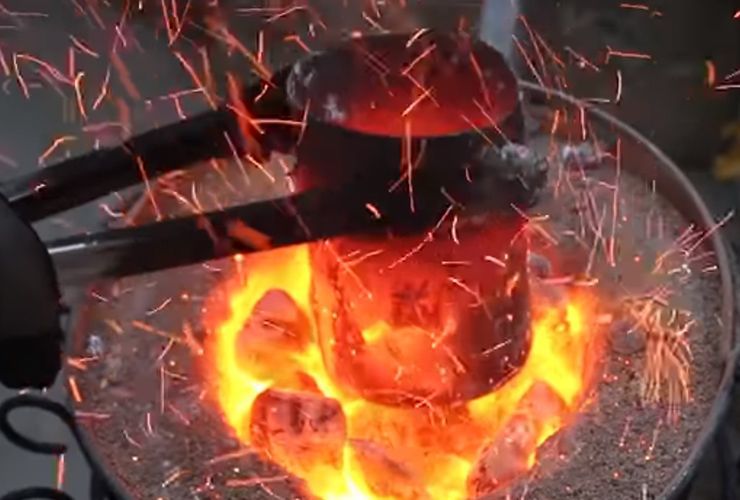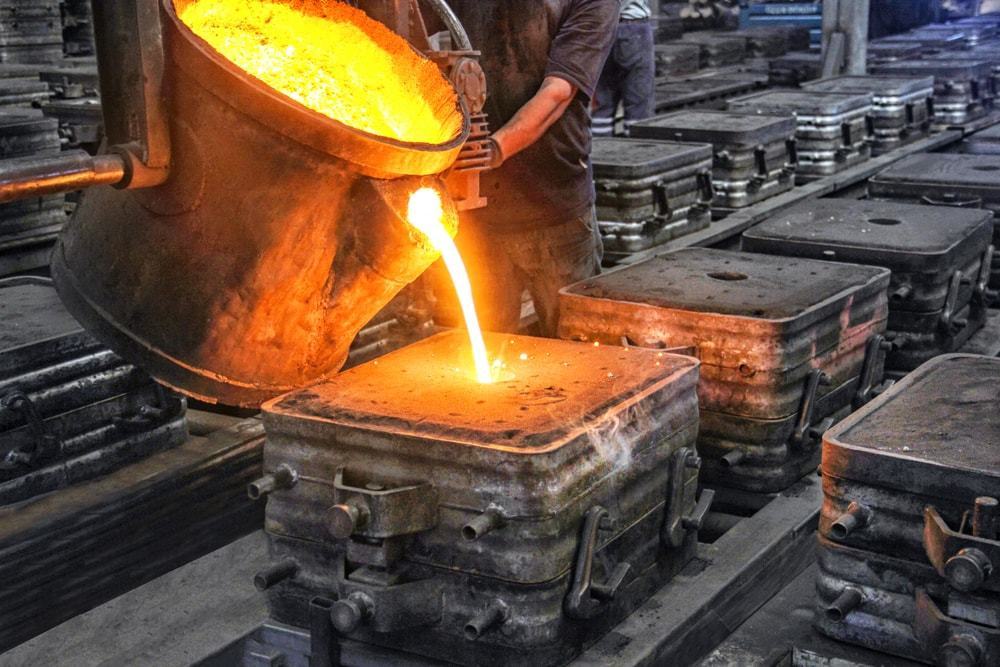Quality control in Metal Casting that ensure durability and accuracy
Checking out the Duty of a Metal Foundry in Modern Production Processes
Metal foundries are crucial in the landscape of modern production. They offer essential parts across various sectors, adapting to the needs of markets like auto and aerospace. Advanced techniques such as 3D printing and automated casting have actually transformed their operations. In addition, sustainability has ended up being a top priority, influencing their methods. As these foundries advance, the ramifications for producing efficiency and innovation are significant, questioning concerning their future trajectory in an ever-changing economic climate.
The Evolution of Metal Casting Strategies

With the rise of mass production, foundries took on approaches like die casting and shed foam casting, simplifying the production process and reducing waste. Each advancement in metal casting techniques has accommodated the needs of different sectors, from vehicle to aerospace. As metal casting proceeds to development, the interaction in between strategy and technology remains important in conference contemporary manufacturing obstacles, making certain that foundries thrive and adapt in an ever-changing landscape.
Assimilation of Advanced Technologies in Foundries
Although typical metal casting techniques have actually offered the market well for centuries, the integration of advanced innovations in foundries is reinventing the production landscape. Automation and robotics enhance production processes, enhancing efficiency and lowering the risk of human mistake. Technologies such as 3D printing permit rapid prototyping and the production of complicated geometries that were when impossible with traditional techniques. Additionally, data analytics and the Web of Points (IoT) make it possible for real-time monitoring and predictive maintenance, inevitably leading to lowered downtime and boosted productivity. These developments additionally promote customization, permitting suppliers to respond swiftly to market needs. As sustainability becomes a top priority, the fostering of eco-friendly modern technologies, such as electrical melting heating systems and progressed sand reclamation systems, better shows the market's commitment to technology. Collectively, these modern technologies not only enhance functional performance however also placement foundries at the center of contemporary manufacturing methods.
The Influence of Material Science on Foundry Operations
Material science plays a crucial duty in boosting foundry operations, influencing both the option of materials and the total casting process. Developments in product scientific research supply a much deeper understanding of the homes of alloys and steels, allowing foundries to select the most suitable materials for particular applications. This expertise boosts the performance and toughness of actors products, which is crucial for fulfilling market standards.
In addition, developments in product solutions and ingredients contribute to enhanced casting methods, enhancing and lowering defects manufacturing performance. The advancement of sophisticated metal compounds and clever materials permits foundries to generate lighter, more powerful elements, which are significantly demanded in various industries such as automobile and aerospace.
Additionally, material scientific research help in the recycling of metals, making processes much more effective and cost-effective. By leveraging the most up to date searchings for in product science, foundries can adapt to progressing market needs, ensuring their competition in a quickly changing manufacturing landscape.
Sustainability Practices in Modern Metal Foundries
With the expanding emphasis on environmental obligation, modern-day metal foundries are progressively carrying out sustainability methods to minimize their eco-friendly footprint (Aluminum Casting). One key technique involves the recycling of scrap metal, which not just reduces waste yet likewise saves power and resources. Foundries are adopting innovative melting innovations that enhance power performance, consequently lowering greenhouse gas discharges. Additionally, using eco-friendly layers and materials has actually acquired grip, additional reducing harmful exhausts throughout manufacturing
Water conservation techniques, such as closed-loop cooling systems, are being applied to lessen freshwater usage. Many foundries are additionally purchasing renewable resource resources, like solar and wind, to power their operations, therefore reducing reliance on fossil fuels. Team training programs concentrated on sustainability methods advertise a society of environmental awareness within the labor force. These campaigns jointly contribute to an extra lasting future for metal foundries while satisfying the needs of eco-conscious consumers.
The Future of Foundries in a Transforming Economic Landscape
As the international economy advances, foundries encounter a myriad of challenges and opportunities that will certainly shape their future (Metal Foundry). The enhancing need for lightweight products and progressed alloys necessitates advancement in production methods and technical integration. Automation and wise manufacturing techniques are becoming crucial for boosting performance and lowering operational expenses. On top of that, the increase of sustainability worries compels foundries to try this adopt greener procedures and reusing campaigns, aligning with global ecological objectives
The financial landscape is likewise shifting, with supply chain disruptions and rising and fall basic material rates providing considerable obstacles. Foundries have to adjust by diversifying their supply resources and buying materials scientific research. Moreover, collaboration with industries such as sustainable energy and electrical vehicles can promote development. Eventually, the future of foundries will certainly depend upon their ability to utilize technical innovations while continuing to be responsive to market dynamics and ecological imperatives, guaranteeing their relevance in modern manufacturing.
Regularly Asked Concerns
What Sorts of Metals Are Frequently Used in Foundries Today?
Frequently made use of metals in foundries today consist of aluminum, iron, steel, copper, and zinc. These products are preferred for their varied residential or commercial properties, enabling a variety of applications in sectors such as automotive, aerospace, and building.
Exactly how Does a Foundry Make Certain Top Quality Control in Its Products?

What Precaution Are Implemented in a Metal Foundry?
Metal foundries execute security actions including individual protective devices, ventilation systems to decrease inhalation of fumes, regular safety training for workers, emergency action procedures, and strenuous devices upkeep to minimize risks and ensure a secure functioning environment.
How much time Does the Metal Casting Refine Typically Take?
The metal casting process commonly takes numerous hours to days, depending on factors such as the complexity of the mold, the sort of metal used, and like this cooling times. Each project's requirements significantly affect the duration.
What Industries Largely Depend on Metal Foundries for Production?
Automotive, aerospace, equipment, and building and construction sectors primarily count on metal foundries for manufacturing. These markets make use of cast steels for elements, making certain durability and efficiency important for their corresponding applications in production and setting up processes.
Metal foundries are essential in the landscape of modern-day manufacturing. Aluminum Foundry. Conventional metal casting methods have served you could check here the sector well for centuries, the integration of innovative innovations in foundries is transforming the manufacturing landscape. Developments in product scientific research supply a deeper understanding of the residential or commercial properties of steels and alloys, enabling foundries to select the most ideal products for specific applications. With the expanding focus on ecological duty, contemporary metal foundries are increasingly applying sustainability techniques to reduce their ecological footprint. Automotive, building, aerospace, and machinery sectors mostly rely on metal foundries for production